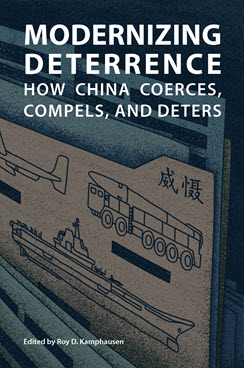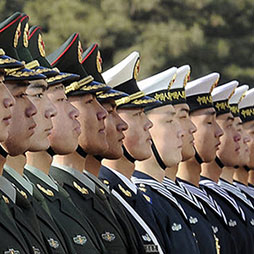Xi Jinping’s Strangelove
The Need for a Deterrence-Based Offset Strategy
This chapter argues that China is exponentially expanding its nuclear stockpile as part of its broader effort to develop a strategic deterrence offset to U.S. conventional superiority because of Xi Jinping’s need to make political progress on Taiwan.
EXECUTIVE SUMMARY
MAIN ARGUMENT
China is engaged in a historic and rapid buildup of its nuclear weapons as part of its broader effort to develop a strong integrated strategic deterrent. While there are several potential motivating factors, China’s need to counterbalance U.S. military superiority and deter U.S. military conflict intervention is principal among these. This is because China is not confident that it can otherwise deny or manage U.S. military intervention, and it appears Xi is poised to use this emerging force posture to make progress toward resolving Taiwan’s separation from the mainland.
POLICY IMPLICATIONS
- China is poised to engage in nuclear coercion in a conflict over Taiwan for the purpose of deterring a U.S. military intervention because Beijing is not confident it can otherwise prevent the U.S. from denying victory over Taiwan.
- Beijing’s development of a strategic counterbalance is primarily intended to force Taiwan into a new normal whereby Taipei must engage in a political process toward unification because it can no longer be confident that the U.S. can come to its defense.
- China is uninterested in meaningful nuclear arms control because real “nuclear minimalism” no longer serves its national security needs.
Brandon J. Babin is a Senior Analyst at the U.S. Indo-Pacific Command.
The views presented reflect those of the author and not necessarily those of the U.S. government.



